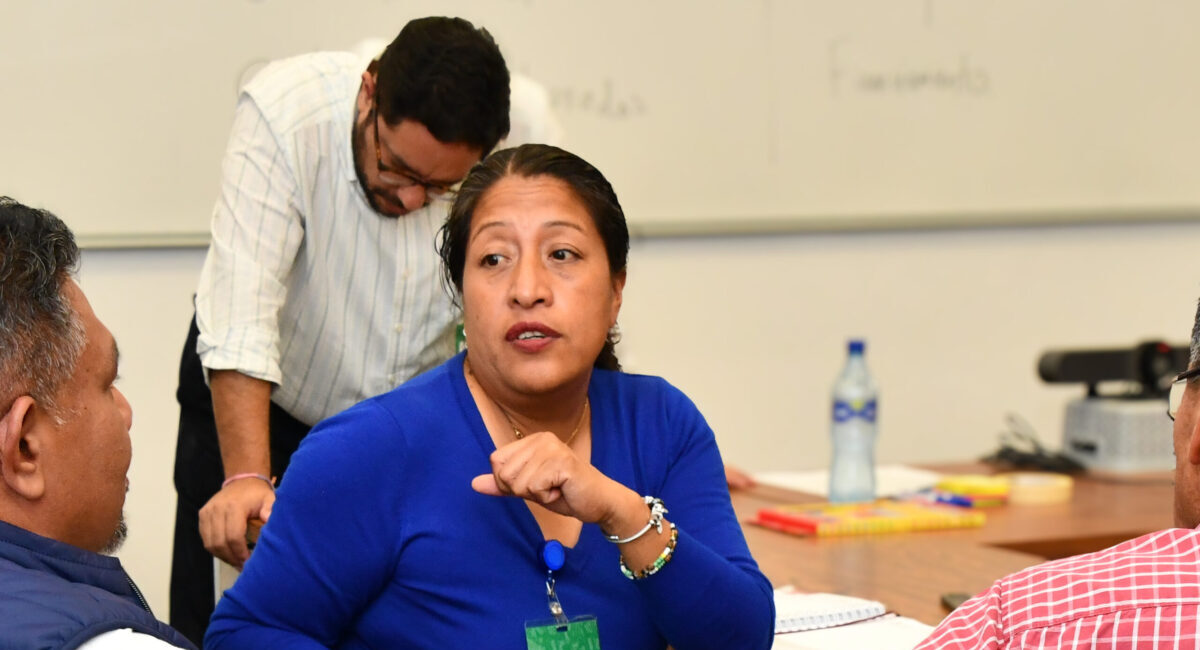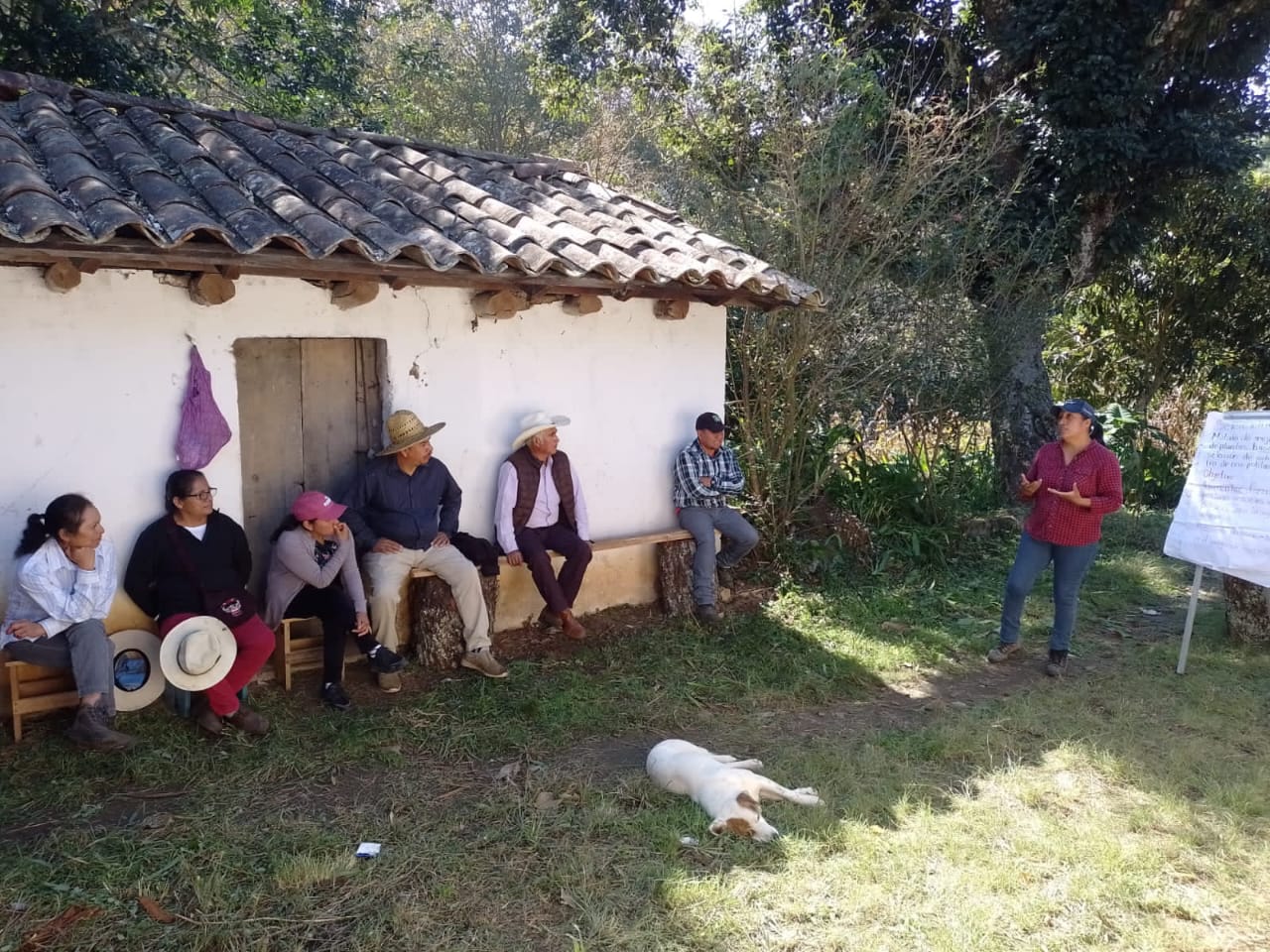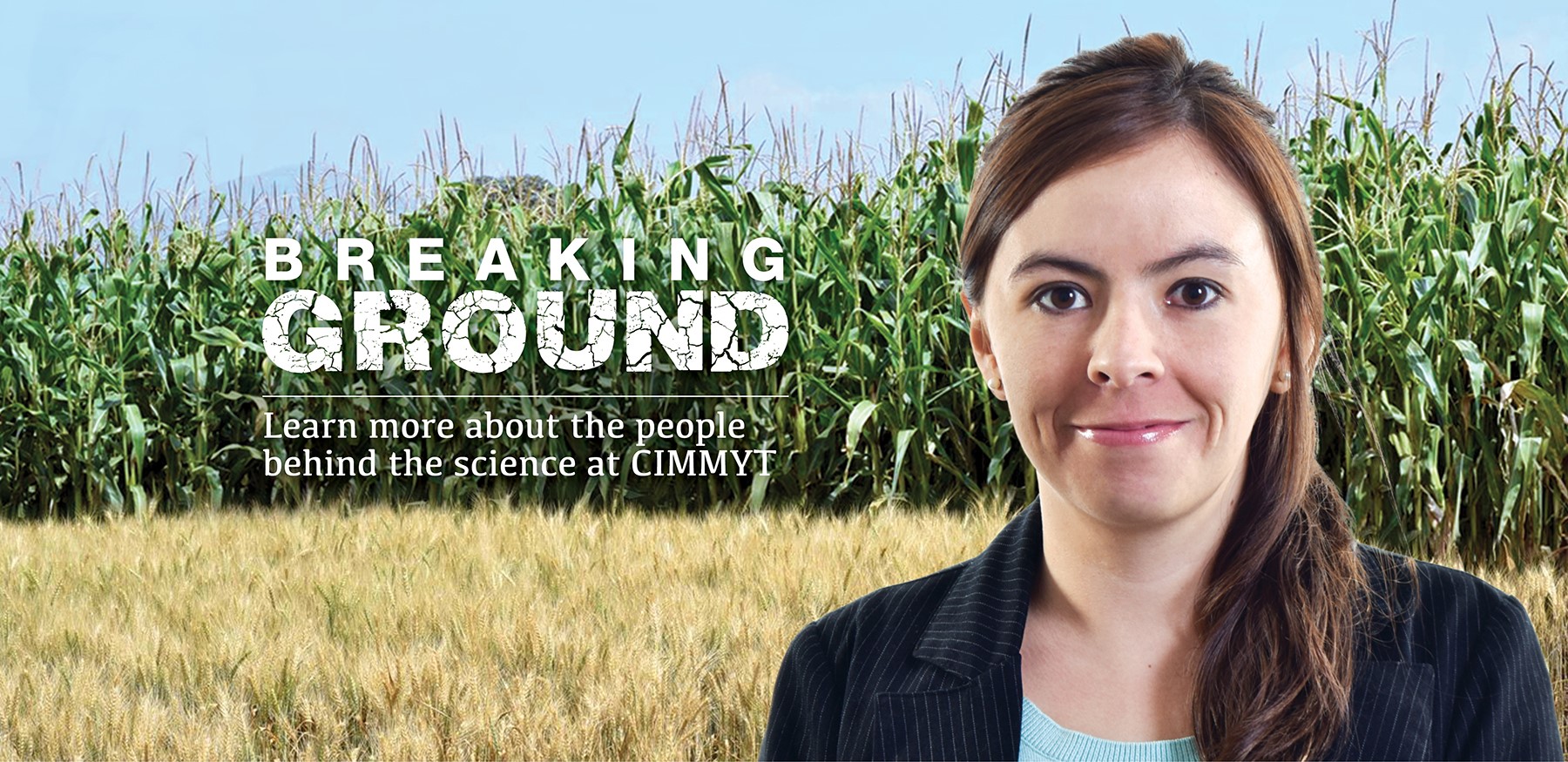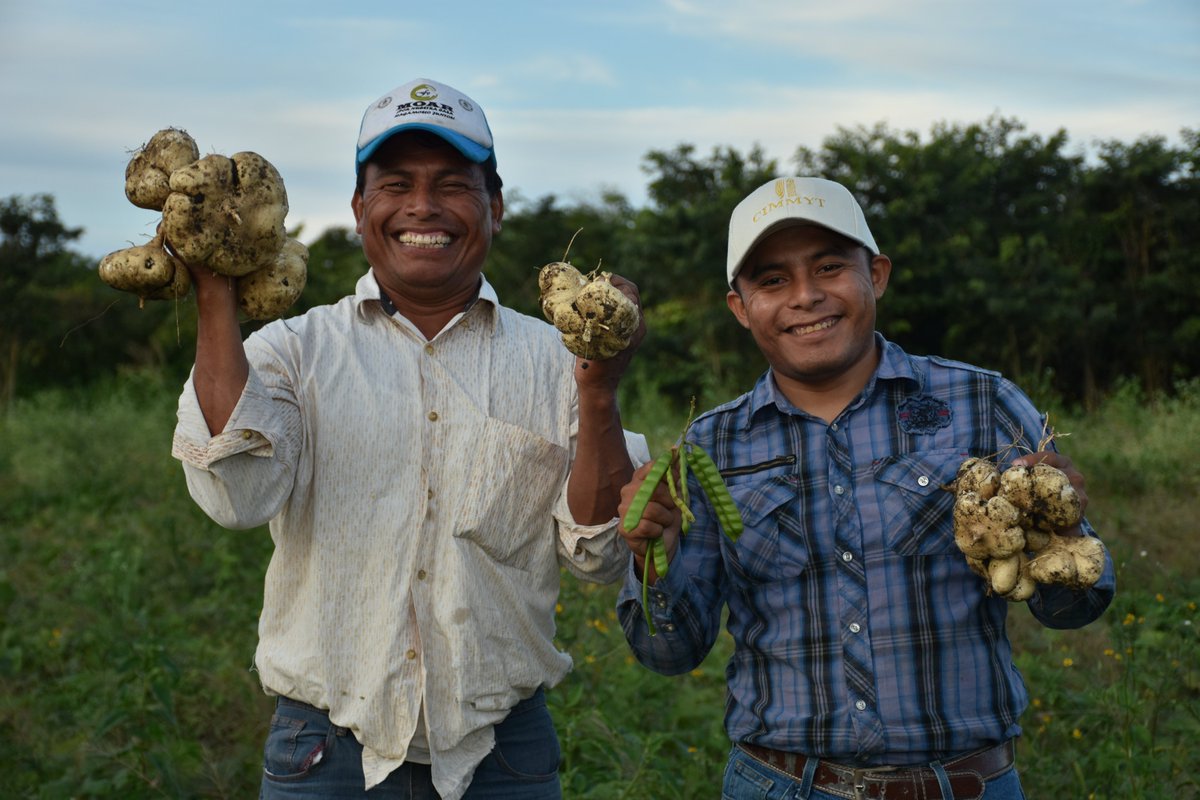From the Sierra Norte of Puebla, Fidelia González Galindo has built her story with determination and courage. At 48 years old, González Galindo is responsible for the Cuautempan Research Platform in the state of Puebla and is part of CIMMYT’s Hub Valles Altos. Her work focuses on improving food security and strengthening native maize production—a mission born from her own struggle to access education.
Research platforms, like the one Fidelia coordinates, are spaces where innovative technologies are developed and validated to enhance agricultural production. These platforms explore improved farming practices, efficient soil and water resource management, and strategies for sustainability and food security. Through her work in Cuautempan, Fidelia strives to ensure that these innovations reach rural communities and are adapted to the real needs of women farmers.

Raised by her grandmother in a community where it was considered normal for women to dedicate themselves to the home and marriage, Fidelia defied these norms—challenging even the authority of the matriarch in her household. With her mother’s support, she pursued a different path, continuing her studies and eventually attending the Autonomous University of Chapingo. There, she faced not only academic challenges but also discrimination due to her Indigenous background and her status as a woman in a male-dominated field. “I never accepted that being a woman was a limitation,” she recalls.
Since returning to her region, Fidelia has tirelessly advocated for the autonomy of rural women, who often take charge of farming while men migrate in search of work. She has witnessed firsthand the challenges they face: limited access to quality seeds, financial constraints, physical disadvantages in labor-intensive tasks, the constant struggle to feed their families, scarce training opportunities, and the overwhelming burden of balancing household responsibilities with agricultural production. “Many times, women have to find additional jobs to support their families, which takes them away from improving their farming systems,” she explains.
To address the many challenges faced by rural women, Fidelia promotes knowledge-sharing on sustainable agricultural practices and works to empower women in decision-making processes. She has helped create support networks among women farmers, facilitated knowledge exchange, and organized training sessions with flexible schedules to accommodate family responsibilities. She also advocates for municipal and government support to fund productive projects, enabling women to generate income independently. “Knowledge is power, and if women learn to manage their resources, they can transform their lives and their communities,” she says.

(Photo: Fidelia González)
Fidelia describes rural women as hardworking individuals, proud of their roots and committed to making meaningful changes in their environment. “They are bold women who, when they learn something new, apply it with determination. And the best part is that they don’t keep the knowledge to themselves—they share it with others so that everyone can improve,” she emphasizes. Beyond producing food, these women care deeply about their families’ health, soil conservation, and their children’s future.
Fidelia represents the relentless efforts of rural women who challenge the limits imposed by society. “Farming is not exclusive to men,” she declares with conviction. Her story is a testament to resilience, learning, and transformation. Through her work, she cultivates not only maize but also hope, knowledge, and a more equitable future for women in agriculture—proving that true change begins when women are empowered to lead from the land they know best.

 Innovations
Innovations 
